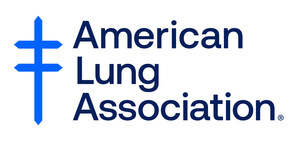American Lung Association Releases Report on Lung Cancer in African Americans: Calls for Eliminating Health Disparities
WASHINGTON, April 12 /PRNewswire-USNewswire/ -- The American Lung Association today released its report, Too Many Cases, Too Many Deaths: Lung Cancer in African Americans, a compilation of research examining lung cancer among African Americans and the need to eliminate this and other health disparities. The report, which includes a preface by William J. Hicks, M.D., provides important information on the possible biological, environmental, political and cultural factors that make African Americans more likely to get lung cancer and more likely to die from it.
Lung cancer is the number one cancer killer in the nation. It has been the leading cause of cancer death among men since the early 1950s, and in 1987 it surpassed breast cancer as the leading cause of cancer deaths among women. African Americans, however, suffer from lung cancer more than any other population group in the United States. Key facts regarding this disparity include the following:
- Despite lower smoking rates, African Americans are more likely to develop and die of lung cancer than whites.
- African American men are 37 percent more likely to develop lung cancer than white men, even though their overall exposure to cigarette smoke – the primary risk factor for lung cancer – is lower.
- African Americans are more likely to be diagnosed later, when cancer is more advanced.
- African Americans are more likely to wait longer after diagnosis to receive treatment, to refuse treatment, and to die in the hospital after surgery.
"As an organization dedicated to public health, we have an important role to play in raising awareness and reducing the toll of lung cancer as the number one cancer killer among African Americans," said Charles D. Connor, American Lung Association President and CEO. "We want to thank Dr. Hicks for lending his expertise to help raise awareness around this important issue in an effort to eliminate this and other health disparities that exist in our country."
While the reasons for this unequal burden are not entirely clear, the Lung Association's report presents a compilation of research that examines smoking behavior, workplace exposures, genetics, access to healthcare, discrimination and social stress, as well as other possible contributors as to why African Americans are disproportionately affected by lung cancer.
"The American Lung Association's report provides overwhelming evidence to support the case for a racial difference in the burden of lung cancer," said Dr. Hicks. "The movement to make lung cancer, a disease which was rarely encountered before the 20th century, another example of man's ability to overcome a public health threat is foretold in this effort."
"While some progress has been made, especially in reducing smoking rates and exposure to secondhand smoke," Connor, continued, "much remains to be done. Reducing lung cancer needs a focused effort. The Lung Association stands ready to work with the healthcare industry as well as governments, community leaders and individuals, to eliminate the disparity of lung cancer in African Americans."
The American Lung Association is calling for increased research funding on lung cancer and other health disparities. Enactment and implementation of proven policies to reduce tobacco including curbing cigarette advertising targeting youth, comprehensive smokefree air laws and coverage of tobacco cessation services, are needed. Radon exposure in federal housing must be addressed. Changes to the healthcare system to improve access to care, improve delivery of healthcare to reduce communication barriers between patients and providers, and recruiting more minorities to the healthcare field.
Last month, the Food and Drug Administration's (FDA) Tobacco Products Scientific Advisory Committee met to review the science relating to the issue of menthol in cigarettes and its impact on public health. The Committee's report and recommendations are due in March of 2011. FDA is also required to develop an action plan with stakeholders to enforce restrictions on the promotion and advertising of menthol and other cigarettes to youth. The Lung Association eagerly awaits both sets of recommendations.
The Too Many Cases, Too Many Deaths: Lung Cancer in African Americans report is the American Lung Association's first in a series taking an in-depth look at specific lung health disparities in specific populations. This report builds on the American Lung Association's long-standing commitment to saving lives and improving lung health for all Americans. For a compendium of information about lung disease in various populations, see the recently released State of Lung Disease in Diverse Communities: 2010, available at www.LungUSA.org.
American Lung Association nurses and respiratory therapists offer support to lung cancer patients and their caregivers through its Lung Helpline 1-800-LUNG-USA. Smoking cessation support, lung cancer treatment information and additional resources are available at www.LungUSA.org.
William J. Hicks, M.D., is the Professor of Clinical Medicine, Division of Hematology & Oncology, The Ohio State University Comprehensive Cancer Center – Arthur G. James Cancer Hospital and Richard J. Solove Research Institute; Co-Director Diversity Enhancement; Columbus, OH.
About the American Lung Association
Now in its second century, the American Lung Association is the leading organization working to save lives by improving lung health and preventing lung disease. With your generous support, the American Lung Association is "Fighting for Air" through research, education and advocacy. For more information about the American Lung Association or to support the work it does, call 1-800-LUNG-USA (1-800-586-4872) or visit www.LungUSA.org.
SOURCE American Lung Association
WANT YOUR COMPANY'S NEWS FEATURED ON PRNEWSWIRE.COM?
Newsrooms &
Influencers
Digital Media
Outlets
Journalists
Opted In





Share this article